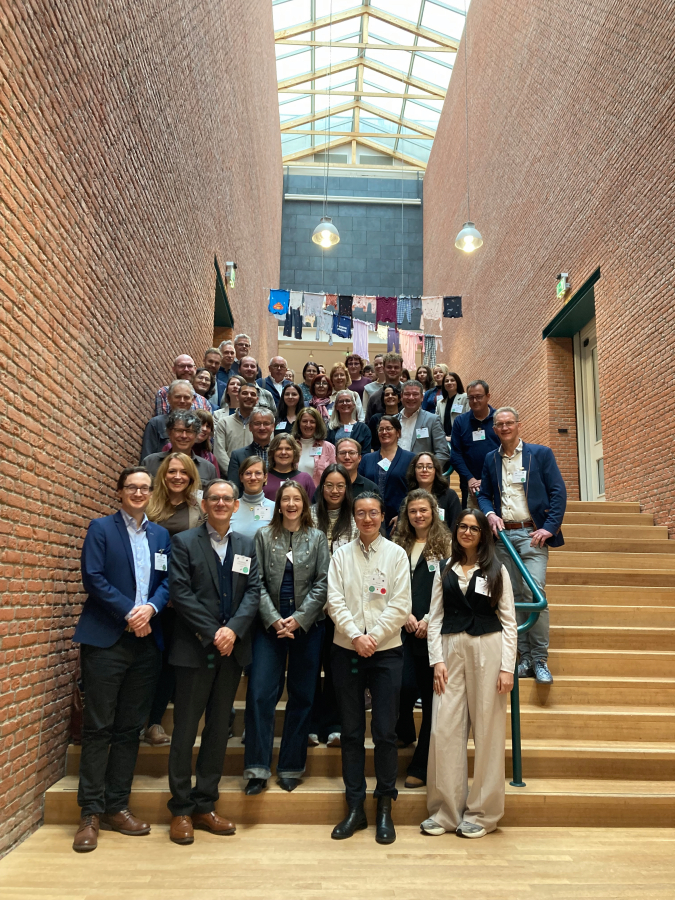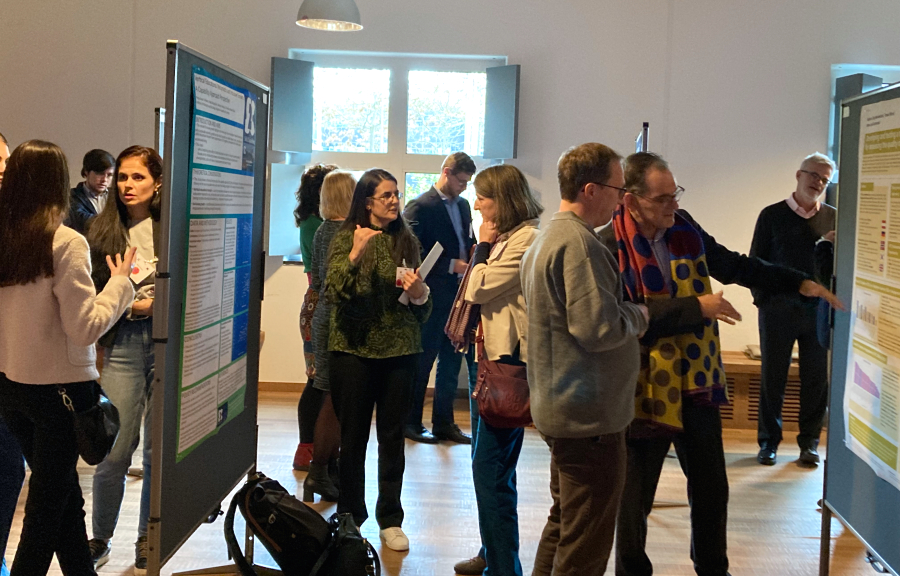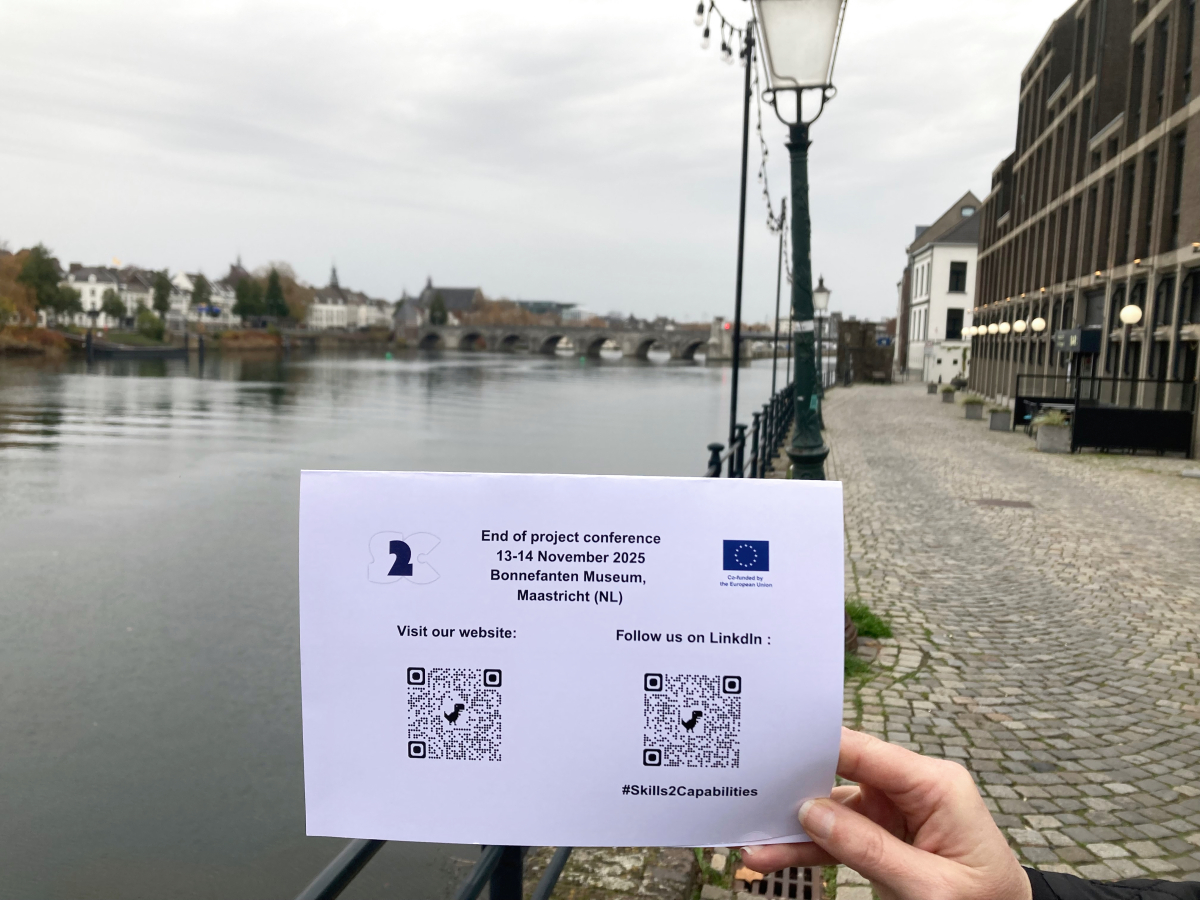Final Conference of Skills2Capabilities: Turning Evidence Into Action
 On 13–14 November 2025, the Skills2Capabilities consortium gathered for its Final Conference hosted at the Bonnefanten Museum in Maastricht. Around 80 participants—including consortium partners, advisory board members, policy experts, international researchers, and representatives from ministries, trade unions, education authorities, and professional associations—came together to review three years of research and discuss what a responsive, proactive, and resilient skills system should look like in the future.
On 13–14 November 2025, the Skills2Capabilities consortium gathered for its Final Conference hosted at the Bonnefanten Museum in Maastricht. Around 80 participants—including consortium partners, advisory board members, policy experts, international researchers, and representatives from ministries, trade unions, education authorities, and professional associations—came together to review three years of research and discuss what a responsive, proactive, and resilient skills system should look like in the future.
The event opened with a welcome address by Didier Fouarge (ROA), followed by Terence Hogarth (IER), who reaffirmed the original ambition of Skills2Capabilities: to test theories and generate innovative concepts on skills development that help education and training systems encourage learning throughout the life course. The overarching question he posed set the tone for the discussions that followed: How can skills supply better meet demand, and how can VET and adult learning systems respond effectively to evolving labour markets?
Keynote Insight: Sandra McNally on the Future of Skilled Workforces
The first keynote was delivered by Sandra McNally (LSE & University of Surrey) on “Developing a skilled workforce for the future: the role of vocational education.” She examined how technological change—especially artificial intelligence—reshapes skills demands and potentially widens inequality. She also highlighted the potential and limitations of incorporating high-quality vocational options into secondary education systems (e.g. UTCs in the UK), stressing the importance of offering VET pathways without restricting future educational opportunities.
Policy Pitches: Key Findings from Skills2Capabilities
 A series of research pitches chaired by Triin Roosalu (TLU) showcased the project’s core findings across different work packages:
A series of research pitches chaired by Triin Roosalu (TLU) showcased the project’s core findings across different work packages:
- national strategies for skills development and VET reforms (Daniel Unterweger, 3s);
- comparative analyses of governance and curriculum responsiveness (Torgeir Nyen, FAFO);
- machine-learning use (especially LLMs) to analyse vacancy data and VET skills demand (Katarina Weßling, ROA/BIBB);
- new perspectives on skills mismatch focusing on human capabilities rather than employability alone (Joanna Kitsnik, TLU);
- VET system responses to changing labour-market requirements (Didier Fouarge, ROA);
- the roles of policy, labour-market services and stakeholders in VET governance (Jaana Kettunen, JYU);
- and the evolution of VET funding mechanisms (Emily Erickson, IER).
These short, high-density presentations offered a cross-sectional view of the changing relationship between skills supply, skills demand, and the institutions that mediate between them.
Poster Session and High-Level Panel: Reconciling Supply-Led and Demand-Led Approaches
 Following the poster session with deeper insights into the work package results, Didier Fouarge (ROA) moderated a panel debate with Hubert Ertl (BIBB), Glenda Quintini (OECD), Kirak Ryu (KRIVET), Inga Balnanosienė (Lithuanian PES & EU PES Network) and Emilio Dogliani (EfVET).
Following the poster session with deeper insights into the work package results, Didier Fouarge (ROA) moderated a panel debate with Hubert Ertl (BIBB), Glenda Quintini (OECD), Kirak Ryu (KRIVET), Inga Balnanosienė (Lithuanian PES & EU PES Network) and Emilio Dogliani (EfVET).
Discussions addressed the persistent mismatch between employment growth and skills utilisation, the shift from supply-led to demand-led approaches over the past 15 years, and how both must now be combined.
Second Keynote: Occupations as the Missing Link?
The first day ended with a keynote by Stephanie Matseleng Allais (University of the Witwatersrand) on “Occupations as the link between education and work: how well does this idea travel?” She questioned whether occupational frameworks translate well across diverse economic contexts, especially in low- and middle-income countries, and differentiated between normative and analytical approaches in VET reform. The day concluded with closing remarks by Daniel Unterweger (3s).
Day Two: Evidence from Skills2Capabilities and Sister Projects
The second day, chaired by Joanna Kitsnik (TLU) and Petya Ilieva-Trichkova (IPS), showcased scientific presentations from Skills2Capabilities and its sister projects. Highlights included:
- Italy’s skill system adaptation (Clementina Croce, dSEA)
- Insights from sister project MEGASKILLS (Katsiaryna Palishchuk)
- Multilevel analyses of skill mismatch and well-being (Petya Ilieva-Trichkova, IPS)
- How occupational curricula react to changing work fields in England, Germany, Norway (Torgeir Nyen & Johan Røed Steen, FAFO)
- informal learning and turnover among new hires (Didier Fouarge, ROA)
- Insights from sister project iRead4Skills on strengthening reading skills through innovation (Raquel Amaro)
- the evolution of VET funding in England over 25 years (Terence Hogarth, IER)
Closing Reflections: Do Our Skills Systems Serve the Future We Want?
In the final remarks, consortiums lead Jörg Markowitsch (3s) reflected on developments from the Maastricht Study (2005) and the Lisbon Goals onward, asking not only how VET can respond to the labour market—but also what kind of labour market and economy we aspire to build. He stressed VET’s role not only in employability, but in innovation, social participation, work integration, and individual well-being.

image by S2C consortium
Contact: Daniel Unterweger
Client: Horizon Europe

